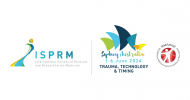Session outline
- The World Health Organization has identified climate change as the single biggest health threat and estimates that between 2030 and 2050, climate change will result in an additional 250,000 deaths annually.
- No one is protected from the disastrous effects of climate change, but the vulnerable groups that live in underdeveloped nations are most negatively impacted in terms of their coping strategies and ill health.
- People with disabilities are an especially disenfranchised minority in many nations, frequently dealing with problems that are complicated by both their conditions and the environment.
- So, there is a need for a collective understanding of how climate change impacts the health of people with disabilities in developing countries.
The workshop will cover the following key areas:
I. Introduction
- Welcome and Opening Remarks
- Brief Overview of Workshop Agenda
II. Introduction to Climate Change and its Health Impacts: A Highlight on lower-Middle -Income countries
- Definition and Causes of Climate Change
- Link between Climate Change and Health
- Key Health Risks Associated with Climate Change
III. Vulnerable Populations: Addressing the Needs of People with Disabilities
- Understanding the Intersection of Disability and Climate Change
- Challenges Faced by People with Disabilities in the Context of Climate Change
- Best Practices for Inclusive Climate Adaptation
IV. Adaptation and Mitigation Strategies for Health and Disability
- Building Resilient Health Systems
- Policy Interventions and Guidelines
- Technological Innovations for Health and Disability in a Changing Climate
VI. Inclusive Approaches for Disaster Preparedness and Response in Disability Context
- Understanding of climate-induced disability-inclusive health-related rehabilitation management
- Inclusive Evacuation Planning and Preparedness
- Ensuring Accessibility in Response and health-related rehabilitation
VII. Community Engagement and Advocacy for Climate-Resilient Health Systems
- Empowering Communities to Take Action
- Advocacy Strategies for Policy Change
- Grassroots Initiatives and Collaborations
VIII. Q&A Session
- Audience Questions for Individual Speakers
- Closing Remarks
IX. Networking and Closing
- Informal Networking Opportunities for Participants
- Recommendations, Thank you and closing remarks
Note: Each speaker will have a maximum of 15 minutes for their presentation to ensure a balanced distribution of time. The panel discussion and Q&A session will allow for more interactive engagement with the audience. The workshop will conclude with an opportunity for participants to connect and network.
Learning outcomes
- Gain a comprehensive understanding of the intricate relationship between climate change, health, and disability with special attention to developing region
- Develop insights into the specific challenges faced by vulnerable populations, especially individuals with disabilities, in the context of a changing climate.
- Acquire knowledge of effective adaptation and mitigation strategies to safeguard health and well-being amidst environmental shifts.
- Learn from real-world case studies showcasing successful interventions and strategies for combatting climate-related health issues.
- Explore innovative technological and policy-based solutions for building resilient health systems in the face of climate challenges.
- Cultivate a sense of agency in community engagement and advocacy for climate-resilient health systems.
- Engage in meaningful discussions with experts and peers, fostering a collaborative approach to addressing climate-related health concerns.
- Access a curated set of resources and references for further learning and implementation of climate-conscious health initiatives in their respective contexts.
Target audience
▪ Allied health
▪ Medical practitioners
▪ Researchers
▪ Physicians
▪ Students
▪ Trainees
▪ Nursing staff
▪ Physicians



